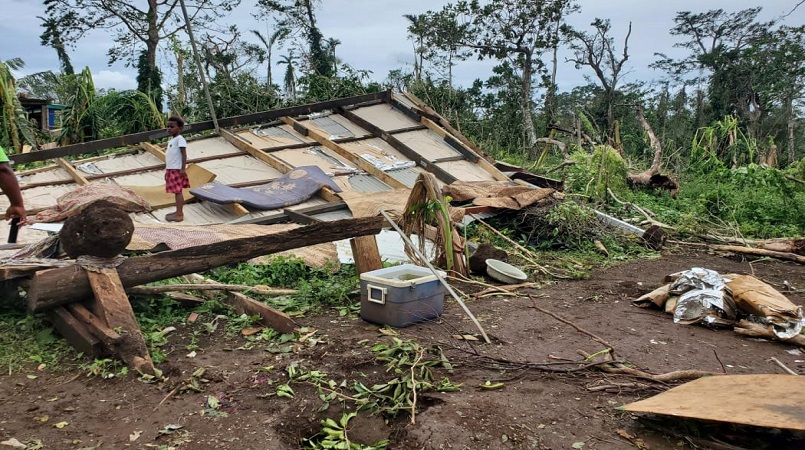
Vanuatu's rampaging cyclones are the latest extreme event to threaten the country's cultural records. A digitisation project could be key to protecting them.
When cyclones ripped through Vanuatu's Port Vila in March 2023, they left a trail of crumpled buildings, mud-stricken roads and decimated powerlines in their wake.
Among those affected was the Vanuatu Cultural Centre, the country's main storehouse for cultural records, which sustained damage on its roof and entrance as well as losing computer equipment.
Vanuatu is one of the most disaster-prone countries in the world and, along with other low-lying coastal communities across the Pacific, it will become more unviable as rising seawater damages garden crops.
As this happens, the risk of local languages being lost gets bigger and bigger.
Already, a number of the world's 7000 languages are no longer spoken.
In the Pacific, where a quarter of the world's languages are, this erosion is happening in part because of increasing urbanisation.
Traditionally, people in the Pacific region lived in villages and had little need to travel outside. They spoke or understood neighbouring languages and passed their own onto their children.
Speakers of Pacific languages represent two major language families: Austronesian and Papuan.
Speakers of Papuan languages first settled in Papua New Guinea and nearby islands around 40,000 years ago, while Austronesians arrived over the past 5,000 years.
One way languages get lost is when speakers of many languages move and meet in cities and switch to national languages for ease of communication.
In the 18th century, initial contact with Europeans led to disease and depopulation that prompted many to abandon their villages and move to larger settlements.
